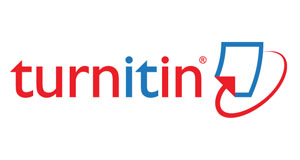An Empirical Study On Qris Implementation For Enhancing Sustainability Of MSMEs In Medan City
Abstract
Keywords
Full Text:
PDFReferences
Cahyani, U. E., Sari, D. P., & Afandi, A. (2022). Determinant of Behavioral Intention to Use Digital Zakat Payment: The Moderating Role of Knowledge of Zakat. ZISWAF: JURNAL ZAKAT DAN WAKAF, 9(1), 1. https://doi.org/10.21043/ziswaf.v9i1.13330
Faizani, S. N., & Indriyanti, A. D. (2021). Analisis Pengaruh Technology Readiness terhadap Perceived Usefulness dan Perceived Ease of Use terhadap Behavioral Intention dari Quick Response Indonesian Standard (QRIS) untuk Pembayaran Digital (Studi Kasus: Pengguna Aplikasi e-Wallet Go-Pay, DANA, OVO. Journal of Emerging Information System and Business Intelligence (JEISBI), 2(2), 85–93. https://ejournal.unesa.ac.id/index.php/JEISBI/article/view/39738
Febriaty, H. (2019). Pengaruh Sistem Pembayaran Non Tunai Dalam Era Digital Terhadap Tingkat Pertumbuhan Ekonomi Indonesia. Prosiding FRIMA (Festival Riset Ilmiah Manajemen Dan Akuntansi), 6681(2), 307–313. https://doi.org/10.55916/frima.v0i2.47
Halim, A. (2020). Pengaruh Pertumbuhan Usaha Mikro, Kecil Dan Menengah Terhadap Pertumbuhan Ekonomi Kabupaten Mamuju. Jurnal Ilmiah Ekonomi Pembangunan, 1(2), 157–172. https://stiemmamuju.e-journal.id/GJIEP/article/view/39
Hamdani, H., & Farmiati, J. (2021). Analisis Serapan Kredit Investasi UMKM di Aceh. Jurnal EMT KITA, 5(2), 157–162. https://doi.org/10.35870/emt.v5i2.470
Harahap, D., Afandi, A., & Siregar, T. M. (2023). THE ISLAMIC BANKING CUSTOMERS’ INTENTION TO USE DIGITAL BANKING SERVICES: AN INDONESIAN STUDY. Journal of Islamic Monetary Economics and Finance, 9(3), 533–558. https://doi.org/10.21098/jimf.v9i3.1673
Hayati, I. (2020). Penguatan Manajemen Keuangan Syariah Bagi Umkm Dengan Menggunakan Metode Door To Door Di Desa Kotasan. Ihtiyath : Jurnal Manajemen Keuangan Syariah, 3(2), 180–191. https://doi.org/10.32505/ihtiyath.v3i2.1783
Hutagalung, R. A., Nainggolan, P., & Panjaitan, P. D. (2021). Analisis Perbandingan Keberhasilan UMKM Sebelum Dan Saat Menggunakan Quick Response Indonesia Standard (QRIS) Di Kota Pematangsiantar. Jurnal Ekuilnomi, 3(2), 94–103. https://doi.org/10.36985/ekuilnomi.v3i2.260
Jauhari, J. (2010). Upaya Pengembangan Usaha Kecil dan Menengah (UMKM) dengan Memanfaatkan E-Commerce. Jurnal Sistem Informasi, 2(1), 159–168. https://ejournal.unsri.ac.id/index.php/jsi/article/view/718
Musyaffi, A. M., & Kayati, K. (2020). Dampak Kemudahan dan Risiko Sistem Pembayaran QR Code: Technology Acceptance Model (TAM) Extension. Jurnal Inspirasi Bisnis Dan Manajemen, 3(2), 161. https://doi.org/10.33603/jibm.v3i2.2635
Ningsih, H. A., Sasmita, E. M., & Sari, B. (2021). Pengaruh Persepsi Manfaat, Persepsi Kemudahan Penggunaan, dan Persepsi Risiko Terhadap Keputusan Menggunakan Uang Elektronik ( QRIS ) Pada Mahasiswa. Jurnal IKRA-ITH Ekonomika, 4(1), 1–9.
Puspitaningrum, R. R. A. P., & Fatah, D. A. (2022). Pengaruh Persepsi Manfaat , Pemahaman , dan Religiusitas Terhadap Keputusan Pelaku UMKM Memilih QRIS BSI Sebagai Media Pembayaran Pada Tempat Usahanya.
Rasyid, A. (2019). DINAMIKA PELAKSANAAN SERTIFIKASI HALAL PADA PRODUK MAKANAN DAN MINUMAN DI KOTA MEDAN, SIBOLGA DAN PADANGSIDIMPUAN. MIQOT: Jurnal Ilmu-Ilmu Keislaman, 43(2), 167. https://doi.org/10.30821/miqot.v43i2.640
Sarfiah, S., Atmaja, H., & Verawati, D. (2019). UMKM Sebagai Pilar Membangun Ekonomi Bangsa. Jurnal REP (Riset Ekonomi Pembangunan), 4(2), 1–189. https://doi.org/10.31002/rep.v4i2.1952
Sari, M. (2014). Enterpreneur Terhadap Kinerja Ukm Di Kota Medan. JRAB: Jurnal Riset Akuntansi & Bisnis, 14(1), 52–65. http://jurnal.umsu.ac.id/index.php/akuntan/article/view/155
Sihaloho, J. E., Ramadani, A., & Rahmayanti, S. (2020). Implementasi Sistem Pembayaran Quick Response Indonesia Standard Universitas Sumatera Utara (1)(2)(3). Jurnal Manajemen Bisnis, 17(2), 287–297. http://journal.undiknas.ac.id/index.php/magister-manajemen/
Tirtayasa, S., Nadra, I., & Khair, H. (2021). Strategi Pemasaran Terhadap Peningkatan Kinerja UMKM dimoderasi Teknologi pada masa Pandemi Covid-19 The Effect of Marketing Strategy on Improving SMEsPerformance is moderated by Technology during the Covid-19 Pandemic. Jurnal Ilmiah Manajemen Dan Bisnis, 22(2), 20371. https://doi.org/10.30596/jimb.v22i2.7395
Trianto, B., Yuliaty, T., & Sabiu, T. T. (2021). Jurnal Ekonomi dan Keuangan Islam. … Dan Keuangan Islam, 7(2), 105–122. https://www.researchgate.net/profile/Budi-Trianto/publication/353730816_Determinant_factor_of_Islamic_financial_inclusiveness_at_MSMEs_Evidence_from_Pekanbaru_Indonesia/links/610cb0721ca20f6f86044f85/Determinant-factor-of-Islamic-financial-inclusiveness-a
DOI: https://doi.org/10.24952/tijaroh.v9i1.7657
Refbacks
- There are currently no refbacks.
Copyright (c) 2023 At-tijaroh: Jurnal Ilmu Manajemen dan Bisnis Islam

This work is licensed under a Creative Commons Attribution-ShareAlike 4.0 International License.








